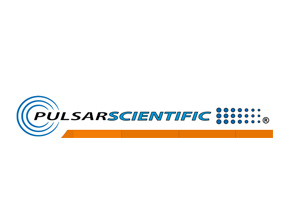A Rush infectious disease specialist explains what we can expect once the first COVID-19 vaccines are approved.
As the COVID-19 pandemic continues to rage, people around the world are waiting with great anticipation for a vaccine to become available. And in recent weeks came the encouraging news that not one, but two COVID-19 vaccines are expected to be approved by the U.S. Food and Drug Administration in December.
We asked Rush infectious disease specialist John Segreti, MD, to explain what we can expect once the first vaccine is approved including who will be the first to receive it.
Q: When will a vaccine be available to the public?
Segreti: There are two vaccines that appear to be effective: one from Pfizer (BNT162b2) and one from Moderna, Inc. (mRNA-1273). It appears as though Pfizers vaccine will be the first to get emergency authorization from the FDA, likely the middle of December.
It’s important to emphasize that hospitals do not have either of these vaccines yet. Every indication is that we will get the Pfizer vaccine 48 hours after it gets FDA approval.
As with other vaccines, COVID-19 vaccines cannot give you the virus. They do not contain a live virus.
Rush and other hospital systems have been working with our local public health departments to make sure we are ready to receive the vaccine a soon as it’s approved. It’s estimated that Pfizer will have 20 million doses of their vaccine available for the U.S., followed by around 20 million doses of the Moderna vaccine by the end of 2020. But distribution when and how much each health care facility gets will be determined by the federal government and local public health departments, not the health care facilities themselves.
Q: Who will be the first to get the vaccine when it does become available?
Segreti:Health care workers will be the number one priority, along with first responders. Other populations will be determined by the public health departments. Everything is still in the planning stage at this point, so we don’t yet know how they will prioritize distribution, but we will share that information as soon as it is available.
Q: Is there a waiting list for receiving the vaccine?
Segreti: Rush does not have a waiting list. As soon as we receive guidance on when and how vaccines will be distributed, we will share that information.
Visit our COVID-19 Resources page for the most up-to-date information on the vaccines.
Q: How effective are the Pfizer and Moderna vaccines?
Segreti: Both vaccines showed around 95% effectiveness, which means that in the placebo-controlled trial, 95% of those who got COVID-19 received the placebo; only 5% of those who received the vaccine got COVID-19. The Pfizer trial included about 44,000 volunteers, and the Moderna trial had more than 30,000.
Both vaccines require two doses: Pfizers 21 days apart and Modernas 28 days apart. And both use the same messenger RNA technology to deliver the vaccine, which is great from a production standpoint because the vaccines can be manufactured and distributed a lot more quickly.
Q: How does the vaccine work? What is messenger RNA?
Segreti: mRNA, or messenger RNA, is a molecule that carries the information cells use to produce different proteins: Think of it as a blueprint. The vaccines harmlessly mimic the virus ability to trigger the bodys immune responses to infections. The Pfizer and Moderna vaccines include mRNA from the coronavirus spike protein which is what enables the virus to infect cells.
Q: Can the vaccine give you COVID-19?
Segreti:As with other vaccines, COVID-19 vaccines cannot give you the virus. They do not contain a live virus.
Q: Are the vaccines safe?
Segreti:Both the Pfizer and Moderna vaccines seem to be very safe and most people have been able to tolerate them pretty well. Neither of their phase 3 clinical trials was discontinued or even temporarily halted due to any adverse event, and fewer than 2% of recipients of these vaccines developed severe fevers of 102.2F to 104F.
The independent board that conducted the interim analysis of Modernas huge trial found that severe side effects included fatigue in 9.7% of participants, muscle pain in 8.9%, joint pain in 5.2% and headache in 4.5%. For the Pfizer vaccine, the numbers were lower: Severe side effects included fatigue (3.8%) and headache (2%).
Q: Will the COVID-19 vaccine be needed annually, similar to the flu vaccine
Segreti:We don’t know yet how long the vaccine will last, so we don’t know if or how often people will need to be vaccinated again. We will make decisions about the need for future vaccinations based on what we learn going forward.
Q: Will people who had COVID-19 already be able to get the vaccine? Do they need to get it?
Segreti:As of right now, we don’t think there is any reason not to get vaccinated, but we will clarify that issue with the local health departments.
If you had COVID-19 and recovered from it, you probably have some antibodies to the virus that causes the disease. But we don’t entirely know what that means as far as your protection against reinfection. While we have not seen too many people get reinfected with COVID within six months of becoming sick, we don’t know how long any immunity might last. So pending guidance from the local health departments, our recommendation will likely be to get vaccinated even if you previously had COVID-19.
Rush seeks participants for COVID-19 vaccine trial
While the news about the Pfizer and Moderna vaccines is encouraging, there are still other vaccine trials in the work.
In fact, Rush University Medical Center is currently recruiting participants for a nationwide trial of a COVID-19 vaccine, AZD1222, developed by the University of Oxford in England and the pharmaceutical company AstraZeneca. The trial will test the vaccines safety, effectiveness and ability to produce an immune response for the prevention of COVID-19.
AstraZeneca announced on November 23 that the vaccine was shown to be highly effective based on an analysis of late stage trials conducted in the U.K. and Brazil. One dosing regimen may be around 90% effective at preventing COVID-19, and no hospitalizations or severe cases of COVID-19 were reported in study participants who received the vaccine.
Rush hopes to recruit a total of 500 adults age 18 years or older who are at an increased risk of infection, such as being an essential worker or living in a crowded or multigenerational household or congregate facility (e.g., nursing home, inpatient rehab facility). Participants will randomly be assigned to receive either the vaccine or a placebo.
To be eligible for the trial, you cannot have a known history of COVID-19 infection; a medical condition that would make it difficult for you to complete multiple follow-up assessments during the two-year study; an impaired immune system; or be pregnant or breastfeeding. Visit our website for more information, including how to contact Rush to see if you are eligible for the trial.
Click here for full podcast playlist.














